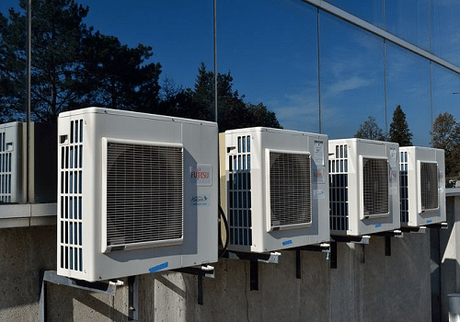For many, a home with a centralized air-conditioning system is a gift that offers the convenience to be able to regulate temperature with precision. On top of regulating humidity and temperature at home, HVAC systems are also crucial in ensuring your home has the best air quality through its filters.

With that being said, it is essential to understand that maintenance of HVAC filters is necessary to ensure that it is functioning well. If you plan on investing in a good filter, here are some of the types that you can choose from:
Right Thickness and Size
One of the basic things you should do before you buy an air filter is to know the size and thickness that you need. Keep in mind that the filter should fit snugly into your HVAC system so that it doesn't have any gaps that allow polluted air to escape into your house. Make sure to measure your HVAC at home.
When it comes to thickness, thicker filters are better at blocking allergens than thin ones. Again, before buying, measure the thickness that your HVAC system can accommodate, particularly since most residential HVAC can only fit filters that are about one to two inches thick.
Right Filter Type
In addition to having the right size and thickness, you also need to choose the right type of air filter. Some of the main types are:
Permanent Electrostatic: These air filters use electrostatic charging to trap particles and clean the indoor air. While each panel can cost up to $20, they can be reused after washing and can last up to eight years.
Disposable Fiberglass: This type of filter is the most commonly used since it is relatively affordable than other filter types. However, this does not offer the best performance, as it can only trap large particles, and you have to dispose of them after use.
Disposable Pleated: The pleated panels are an alternative for the fiberglass panels since they can also block small particles. Plus, the pleated structure helps in increasing the surface area for filtration. Like the flat panels, this filter needs to be changed more regularly.
High-Efficiency Particulate Air (HEPA): If you plan on investing in a heavy-duty HVAC filter, HEPA filters are your best option since they can remove up to 99.97% of air particles. Although they are most commonly used in commercial settings such as laboratories and hospitals, they can also be used in residential homes, particularly for those with breathing problems.
Appropriate Rating
It is also vital to understand that filters have ratings to scale the ability of the filter to remove harmful air contaminants and improve air quality. The American Society of Heating, Refrigerating, and Air-Conditioning Engineers uses the MERV rating. According to this scale, filters with the higher ratings are regarded as the best options. Ideally, home air filters should have a MERV rating of 6 or more.
Some products use the 3M Microparticle Performance Rating and the Clean Air Delivery Rate (CADR), which is also acknowledged by the Federal Trade Commission and the Environmental Protection Agency (EPA). If you're using these ratings, go for filters with a rating between 12 CADR and 240 CADR. You should also focus on restrictive airflows, as these will make your HVACs work more efficiently. It would also be best to check the capability of your HVAC system before buying your filter.
Given these considerations, you should also make sure to practice proper maintenance of your filters. Follow instructions for proper usage, cleaning, and disposal.
